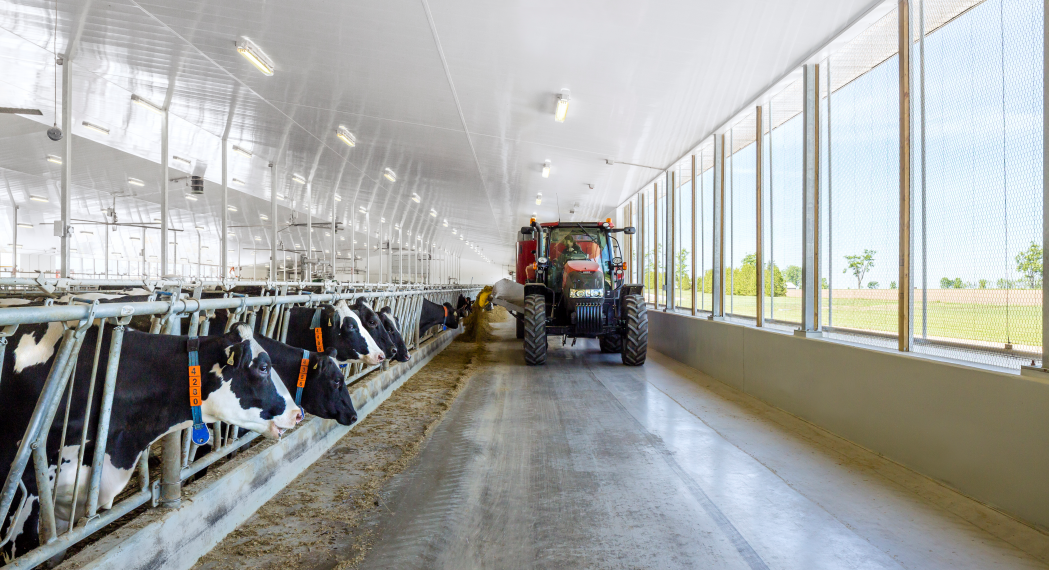Focus on Sustainability

Feed costs represent about 70 per cent of cattle producers’ total expenses. Cattle are under the microscope for contributing to greenhouse gas emissions.
And breeding could address both matters.
That’s what one University of Guelph researcher is doing, with help from the Ontario Agri-Food Innovation Alliance. Using genomics, she’s identifying cattle that naturally use their feed more efficiently.
Prof. Angela Cánovas, Department of Animal Biosciences, is helping improve cattle feed efficiency (the ability to convert food nutrients into milk or meat) by combining new genetic techniques to select for more sustainable and feed-efficient cattle in breeding programs.
She believes that as cows become more effective at processing food, they could require less food and produce less waste.
That would naturally lead to lower feeding costs and greenhouse gas emissions.
“We’re using the most novel technologies to identify genes affecting economically important traits,” says Cánovas.
She’s finding genes linked with improved feed efficiency traits, using genomics and production data from Ontario cattle. That involves a mix of new and innovative techniques to collect evidence for these connections.
One technique called transcriptomics compares gene expression rates between cattle with high and low feed-efficient traits like liver and muscle energy efficiency. Metabolomics looks at how metabolites are used within cells.
Another promising trait connected to feed efficiency is the bacterial makeup of the cow’s rumen. Different groups of bacteria have varying abilities to break down and absorb nutrients from food. Researchers may use metagenomics to study the correlation between genetics and the associated bacterial profile. Using these methods, Cánovas identified which sets of genes correlate to certain bacterial profiles in cows that process food more efficiently.
Beef and dairy farmers can begin selecting for cattle with these genes in breeding programs to produce more efficient cows with smaller environmental footprints.